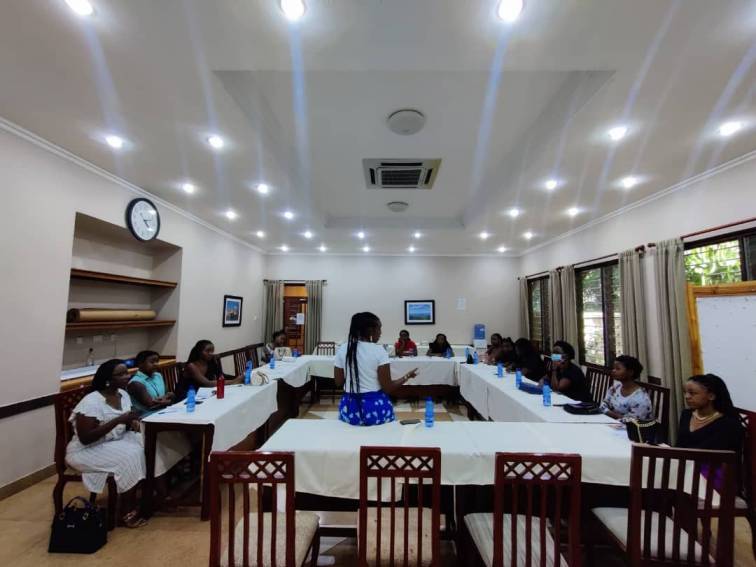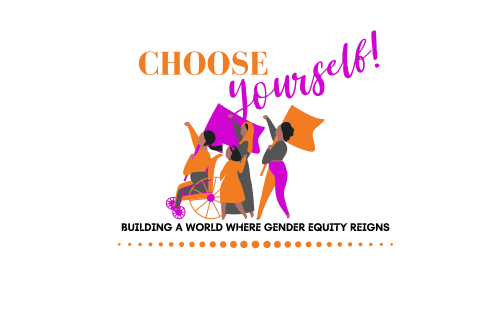Abortion laws and regulations within the Ugandan context are often vague and inconsistent, therefore warranting the arrests and stigma around the procedure and conversation.
As part of our second GT activity, we organized a conversation on the 13th of August 2022. The objectives of this conversation were to:
- Discuss the challenges faced by women and girls
- Discuss the challenges faced by medical professionals that help women and girls procure abortions.
- Discuss the role played by the regulations against abortion in shaping the community’s perspective on women.
- Effect of the external laws like Roe vs Wade on advocating for abortion rights in Uganda.
- The negative impact it has on Women’s bodies.
Unintended pregnancies will lead to two different outcomes, either unintended births or unsafe abortions. The failure to legalize safe abortions has increased class disparities, as the financially able persons can have access to safe but costly abortions and post-abortion care while those not in the financial position will have to endure unsafe, traditional, self-induced or procedures practiced by an unqualified individual.
A lot of the stigma surrounding the sexual and reproductive rights conversation in Uganda come from men not supporting their spouses, their want for more children and the myth that healthy abortions or use of contraception will promote extra-marital affairs.
Women have additionally reported about the mistrust of medical practitioners as well as abuse from medical personnel when visiting a clinic or hospital with the intent to access abortions or post-abortion care.
Surprisingly, abortions are supported by men in the instance that i the pregnancy in question is with a school girl or someone who they were involved in a marital affair with, and they don’t intend to have a family with those women.
Another notion that is against abortion rights and legalization in Uganda is that it will create an increase in rates of the women that procure the abortions.
Post abortion care for unsafe abortions is an issue linked to the failure of the Ugandan government to legalize abortion. Often times, abortions that have been induced in unsafe situations come with complications that require treatment. This is treatment that is expensive and resources such as;hospital care, blood transfusions, antibiotics etc are often limited.
The complications involved include but are not limited to sepsis, shock, lacerations and perforations.
How then do we reflect on the impact of legislation against abortion and advocate for access to safe abortions, protection for women and medical personnel, and recognition of women’s right to bodily autonomy?
Enhance awareness of safe abortion methods and contraception. This can be done by creating safe spaces to have conversations on abortion rights that address the myths surrounding abortions and share scientific facts that support abortion. It is also essential to address the issue of language used when discussing abortion to correct the misconception of what amounts to a fetus or a child. All this will help to destigmatize abortion in society. Creation of abortion centers that offer safe spaces or facilities for procuring abortion. There is a need for advocacy to reform abortion laws to legalize abortion in Uganda.
Due to abortion not being legalized in Uganda, several women and medical practitioners have been arrested and charged for either procuring an abortion or performing the abortion procedure on a patient. There have been incidents when medical practitioners have been arrested for offering post-abortion care to women that procured unsafe abortions from unknown sources. It is therefore important to enhance awareness creation on the protection of women’s right to choose parenthood and medical practitioners who recognize this right and are willing to help women in performing the abortion procedure in a safe facility.
Declaring abortion illegal also puts women at the mercy of unscrupulous medical practitioners, who may perform unsafe abortion procedures in unsafe facilities and use harmful language during their interactions with women seeking to procure abortions. There is a need for training and enhancing the capacity of medical practitioners in handling abortion cases ranging from the language used, mental health support for the women, and aftercare after the procedure.
Laws that criminalize abortion are a violation of a woman’s right to bodily autonomy, to choose whether to proceed with a pregnancy or not. When the state creates legislation dictating the choices of a woman’s body, it implies that women do not entirely have a say in what can and cannot be done to our bodies. The state needs to recognize a woman’s right to choose parenthood, given the life-threatening effects that may come with pregnancy. The state has no business legislating on women’s bodies, as our bodies are not a political playground that the state gets to choose on our behalf.
Abortion laws are further used to police women’s choices of being sexually liberated. Through the existing patriarchal systems in place, our societies wish to limit and control women by teaching values of chastity and modesty to only women. A sexually liberated woman is not considered an ideal example of womanhood in our societies, and therefore the regulation against abortion is intended to control women’s choices rather than promote morality. Studies show that pregnancy and child care by its nature is known to hold women back and reduce our capacity to live quality and fulfilled independent lives. The society also views women’s bodies and our role in society as a tool for recreation, so any woman who has sex is deemed ready to have children. Society ignores the fact that women too can have sex for pleasure, and any woman seen to desire sex for pleasure is deemed deserving of the ‘life punishment’ of having children and being bound to proceed with the pregnancy.
Rights are interlinked, and denial of one right leads to denial of other rights. Legislation on women’s bodies creates room for reasoning that the state and society own our bodies, hence limiting the importance of our consent and bodily autonomy. It opens room for women facing other violations like sexual harassment, GBV, femicide, and rape among others.
Author- Lisa Kanyamozi, GT Coordinator, Ug


